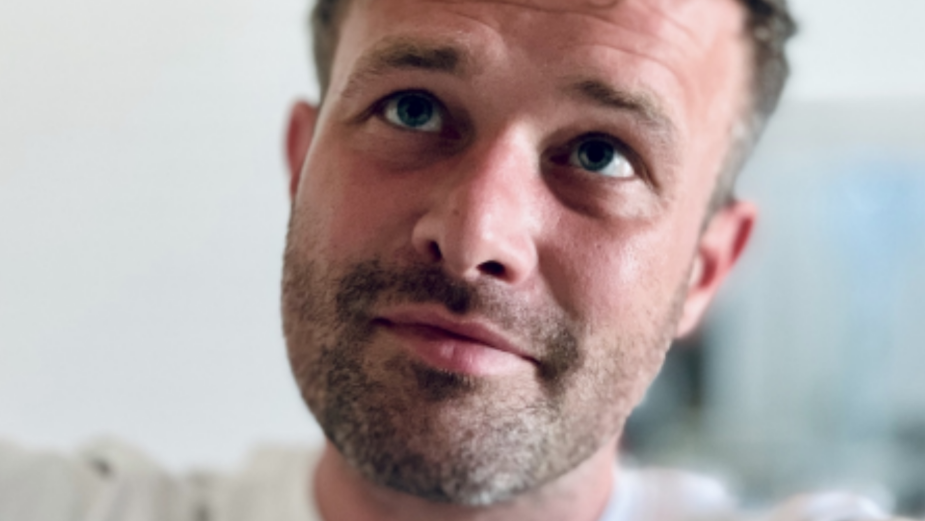
The Directors: Tom Stevens

Tom is an experienced and passionate London-based director with a proven history of delivering high-quality Commercials, Branded Content, Promos and TV. He has collaborated with brands such as DHL, American Express, Qatar Airways, Samsung and Jaguar; building a diverse portfolio of work with a wide array of high-profile on-screen talent. His passion is in delivering entertaining and engaging content across a range of platforms, using his strong editorial instincts and a keen eye for detail and quality.
Name: Tom Stevens of NM Talent
Production Company: NM Productions
Location: London, UK
LBB> What elements of a script sets one apart from the other and what sort of scripts get you excited to shoot them?
Tom> I love scripts with a clear and concise concept that allows me to speak visually. I’m always excited to try something new, which is actually quite rare as a commercials director, as you tend to get easily pigeon-holed and only offered work that’s very much in line with what’s on your reel.
LBB> How do you approach creating a treatment for a spot?
Tom> Treatments are usually quite simple to write, when you have a good idea of what is expected from the production company, agency or client. I always try to find the one most important thing, when approaching a developing idea, to ascertain where the agency and client are expecting you to go with it. If they have given you a clear concept (or if you’re lucky a fairly detailed script), they are likely to want a beautiful document with lots of descriptive language and evocative visuals. If you go away and write up a completely different idea, even if you think it’s better, they probably won’t like it because it is likely that there have been weeks or months of creative work to get to this stage already. Obviously, the best treatments to write are the ones where you can collaborate and develop an original idea from scratch, really putting a lot of yourself into it.
LBB> If the script is for a brand that you're not familiar with/ don’t have a big affinity with or a market you're new to, how important is it for you to do research and understand that strategic and contextual side of the ad? If it’s important to you, how do you do it?
Tom> It’s always essential to know where the content you’re making is going to sit. Is it for television, cinema, social or for their website only. This will all affect the content and production of the piece. It’s also important to look at the content the brand has made already. If they have created what you think is ‘safe’ content, you might have a tough time encouraging them to go for something a bit more ‘out there’ or adventurous, even if they say this is what they are looking for. I have been involved in several projects where the client has lost their nerve with material that was out of their comfort zone, even after we finished shooting. This is why you should always think about why they are making this piece and what is it’s purpose. What is it they are actually promoting or advertising, should it feel consistent with their other produced content or should it feel purposefully stand alone and different. All this will help with your approach to the creative.
LBB> For you, what is the most important working relationship for a director to have with another person in making an ad? And why?
Tom> I believe the key working relationship on a commercial, as a director, is with the producer. As the director you seldom get to be involved with the budget or get to be in direct contact with the client. Depending on the production company and agency involvement there will usually be one or several people between you and the client. You want a producer who can do the nuts and bolts producing work whilst also keeping an open dialogue between the agency, client and crew, to ensure that everyone is always on the same page.
LBB> What type of work are you most passionate about - is there a particular genre or subject matter or style you are most drawn to?
Tom> As a director I’m at my happiest when I can leverage a good amount of control. I have a reasonably diverse portfolio of work but my true passion lies in working with actors on scripted content. I love blocking out scenes, drawing up my own storyboards and working with the DOP and gaffer on lighting scenes.
LBB> What misconception about you or your work do you most often encounter and why is it wrong?
Tom> I think the main misconception about any director’s work is that they can only work in one or two given fields. You tend to be selected for work predominantly based on what you have done before. However, every director wants to turn their hand to as many subjects and styles as possible in order to develop and grow.
LBB> What’s the craziest problem you’ve come across in the course of a production – and how did you solve it?
Tom> I was directing a piece for a big brand with a very high-profile celebrity. They arrived for the rehearsal and it became very clear that they had no idea what the creative was, their agent hadn’t fully briefed them or explained the full extent of their role. Halfway through the rehearsal they walked off set, expressing how uncomfortable they were and therefore pulling out of the job. The budget was significant and there were a lot of nervous people around. The solution we came to was to open up the creative to the talent, to make them feel more involved. So many times in commercial work the actors are just an element who plug in when they arrive. On this occasion I felt that the talent would be more open if we worked collaboratively, this way they could input ideas and express what they think could work better for the project. In the end the piece turned out similarly to where we had started but the talent felt much more fulfilled, which was key.
LBB> How do you strike the balance between being open/collaborative with the agency and brand client while also protecting the idea?
Tom> I don’t think you’re ever going to pull one over on the agency or brand. If they don’t like something in the script, they’re not going to like it in the film. I think a big mistake is to treat them in an adversarial way, they are collaborators. In the end, they hold all the cards, the budget is theirs and they can amend the edit as many times as they want/ can afford. The most important thing with clients is to be honest. If something is not working, if the script is too long, if the messaging is getting lost and so on, you should always say something. Make your opinions known, even if you feel they may be unpopular. Sometimes tiny incremental changes during pre-production can really impact on a concept, it’s the director’s job to have their hands on the reigns and keep it on track.
LBB> What are your thoughts on opening up the production world to a more diverse pool of talent? Are you open to mentoring and apprenticeships on set?
Tom> There is definitely a hugely diverse body of talent out there and it’s fantastic to see how that has grown since I first started in the industry after university. Commercials can be a really great environment to learn the trade in as they short, fast and intense. My first job in the industry was as a runner on music videos, it was a great place to learn the ropes. If a production company on any given project offers mentoring and apprenticeships, I’d be more than happy to help.
LBB> How do you feel the pandemic is going to influence the way you work into the longer term? Have you picked up new habits that you feel will stick around for a long time?
Tom> The great upside of pandemic working is that there are fewer in-person meetings. It’s great that people have become much more comfortable with zoom and phone calls, rather than having to spend lots of time travelling in and out of town for meetings. The thing that I’m delighted about is that in-person edits are back! I really love working with editors and I found remote edits to be enormously challenging during the height of the pandemic.
LBB> Your work is now presented in so many different formats - to what extent do you keep each in mind while you're working (and, equally, to what degree is it possible to do so)?
Tom> Again, it’s always useful to know exactly where the work is going. Sometimes your hero edit won’t be the one that the client is most interested in - they are likely to want a cutdown for social or similar – it’s important to keep that in mind. Do you write a unique cutdown or do you work out where to cut down your hero film to fit organically into a shorter length. I do always try to keep the formats in mind when making a piece, however, I do often think that compromising the visuals of your 16:9 version in favour of your 9:16 version feels like a mistake. There are too many differences in the two formats. If time permits, I always try to push for both to be shot separately, so we’re not shooting the 16:9 incredibly wide, or creating a letterbox export of the 9:16 version to allow for more of the screen to be in vision.
LBB> What’s your relationship with new technology and, if at all, how do you incorporate future facing tech into your work?
Tom> If I’m honest, I have rarely required much investment into future-facing technology, but as a keen editor I’m always looking at new developments in post-production. I’m a huge stickler for workflow on commercials, so I love to keep abreast of all of the new finishing tools.
LBB> Which pieces of work do you feel really show off what you do best – and why?
Tom> The four pieces of work I’d choose are:
- DHL & Manchester United, this was a big project that was shot at Old Trafford.
- Qatar Airways ‘Follow the Ball’, which was shot in the UK and Qatar, for the Euros.
- Wolverhampton Uni, which was a small low-budget project that turned out really well.
- And finally, Samsung, with Josie Gibson from This Morning, a lovely piece I did recently















